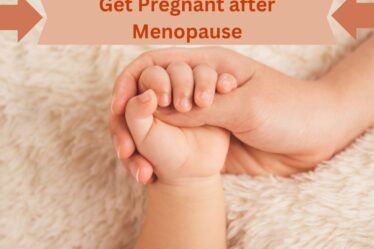
Menopause is a normal stage of aging. Perimenopause, the initial phase of menopause. Usually beginning in the early to mid-40s, perimenopause can continue for three to five years. Hormones change during perimenopause and menopause, which can result in painful feelings and these menopausal symptoms.
Menopause is a normal stage of aging. Perimenopause, the initial phase of menopause, starts to impact a woman’s capacity for procreation. Usually beginning in the early to mid-40s, perimenopause can continue for three to five years.
When a woman has gone 12 months without having a period, she is said to be in menopause. In the United States, menopause typically begins at age 51.
Hormones that change and diminish cause perimenopause and menopause. The body’s many organs are impacted as hormonal levels drop. These consist of the following :
- reproductive system
- vaginal tract
- urinary system
- nervous system
- heart
- brain
- bones
- skin
Pain is a typical symptom frequently linked to hormone shifts.
Hormone Alterations
The luteinizing hormone and follicle-stimulating hormone control your menstrual cycle. The pituitary gland produces these two hormones. Encourage the ovaries to make progesterone and estrogen. These hormones change during perimenopause and menopause and can result in painful feelings and these menopausal symptoms.
Breast Tenderness and Cramps | Menopause Symptoms
Cramps that are more painful and powerful than usual may accompany changes in your period. Additionally, you could feel your breasts sore before and during your period. Additionally, you could discover that your menstrual flow is minimal in some months, and in others, it is heavy.
Read This – How to Find Joy in Life | 7 Habits to Add to Your Routine
Head Pain from Migraines
Migraines and hormone fluctuations are related. During perimenopause, you may get migraines for the first time or notice an increase in frequency or severity.
Some women experience the opposite effect, with a decline in migraine frequency as they approach menopause. This might be the case because estrogen can produce headaches when levels are high and decrease when levels are low.
Aching Joints | Menopause Symptoms
Joint discomfort brought on by menopause may affect the hands, elbows, shoulders, neck, and knees. An old common injury may start to hurt. You could realize over time that you have more aches and pains in particular locations than you once did. Because estrogen helps to alleviate inflammation, this is the case. As its levels drop, inflammation may worsen, resulting in pain and arthritis connected to menopause.
Bruising
Hormone alterations and declines also have an impact on the skin. The suppleness of the skin can decline as estrogen levels fall. Additionally, it makes the skin less able to hold onto water, which it uses as a cushion against injury. As a result of the skin becoming thinner, severe bruising frequently occurs. The hands’ backs are especially susceptible to bruises.
Fibromyalgia
Menopause may result in increased pain sensitivity for women with fibromyalgia. Women approaching menopause or perimenopause frequently receive the first diagnosis for the chronic pain syndrome known as fibromyalgia.
Pain, exhaustion, and dry vaginal discharge are a few menopause symptoms that also happen to be fibromyalgia symptoms. Therefore, it is not always simple to identify the problem generating the symptoms.
Pain during sexual activity | Menopause Symptoms
When going through menopause, the pain might occasionally accompany intercourse. It may be challenging to sustain intimacy because of this. However, women can find techniques to maintain a happy sexual experience during perimenopause, menopause, and beyond.
The hormone deficient during menopause, estradiol, keeps vaginal tissues pliable. Additionally, it encourages the vagina’s ability to produce moisture, which makes intercourse more bearable. The tissues of the vagina become thinner when estrogen levels decline. This may make sexual activity painful. Additionally, the vagina loses its natural lubrication, making it more prone to tearing, dryness, and irritation.
There may also be vaginal atrophy. The vagina may shorten and contract as a result of this. Symptoms of the urinary tract, such as the following, may accompany vaginal atrophy:
- Urgent need to urinate
- Urine leakage
- Burning while urinating
A decrease in sexual desire and a decreased capacity to be sexually excited may also result from changes in hormone levels. Because of this, lubricating the vagina may become even more difficult.
At any point during perimenopause or menopause, these alterations could occur.
Consult your Doctor
Don’t put off getting pain relief. Most menopause-related discomfort can be lessened or eliminated with over-the-counter medications, professional care, or dietary adjustments.
What kind of doctor you see could depend on the difficulty you’re experiencing. Your gynecologist might be an excellent place to start.




[…] Read It -: Menopause Symptoms | Is The Menopause Painful? […]
[…] Read More -: Menopause Symptoms | Is The Menopause Painful? […]
[…] Read This Article – Menopause Symptoms | Is The Menopause Painful? […]
[…] Read This : Menopause Symptoms | Is The Menopause Painful? […]